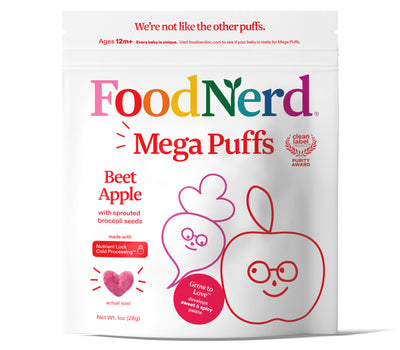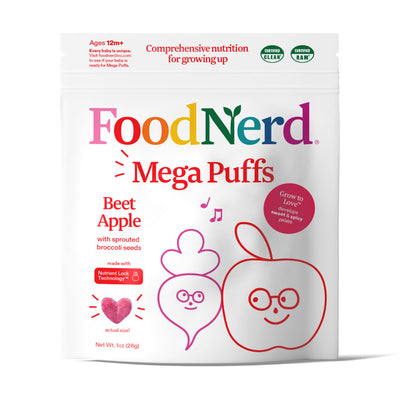The Forgotten Superfood
Flax seeds and their oil have been a part of the human diet for more than 6,000 years in Asia, Europe, Africa, and North America due to their unique nutritional benefits.
Luckily, it has become more trendy to eat flaxseed in recent years. Eating flax seeds or the seeds of the flax plant has many health benefits, which are backed by a growing body of scientific research. Research shows that eating flaxseed on a regular basis may help to treat and prevent a variety of chronic diseases.
Read on to find out what flaxseed is, what makes it so special, and what health benefits you can expect to get from eating it.
What are Flax Seeds?
Flax is a flowering plant that produces sky-blue flowers and fruit capsules filled with small seeds (aka flax seeds!). Interestingly, the Latin name for flaxseed means “very useful”. We will find out just how useful flaxseeds can be for our health.

What is in Flaxseed that Makes it So Special?
We refer to flaxseed as a superfood because it contains an abundance of powerful nutrients.
Flaxseed is a rich source of:
These compounds are biologically active, meaning that they exert a direct physiological effect on our bodies. This is because their properties help to prevent inflammation (precursor to many diseases), oxidative stress (damage to our cells that results in aging and the development of diseases), and lower lipids in the blood (helps prevent heart disease). This is clear evidence that flaxseed is an important functional food.
Flaxseed is also a good source of protein, magnesium, phosphorus, manganese, vitamin B1, selenium, and zinc.
What Happens When Flax Seeds are Sprouted?
Sprouting foods, such as flaxseed, puts less work on our digestive system and makes it easier for our bodies to absorb the food’s nutrients.
Sprouting flax seeds also:- Significantly increases their lignan content.
- Significantly enhances the antioxidant activities of the plant (helps prevent inflammation and damage to our cells).
What are the Benefits of Eating Flaxseed?
Flaxseed does so much more than help us reduce constipation. On the contrary, it has an impressive, growing body of research that supports its use in a variety of chronic diseases.
Research has shown that consumption of flax seeds may:
- Protect against heart disease. Several clinical trials have shown that omega-3 fatty acids can have powerful protective effects against heart disease and the omega-3’s found in flax seeds are no exception. For example, flaxseed has been shown to:
- Reduce blood pressure. Both observational and randomized controlled trials have shown that blood pressure lowering effects of flaxseed. For example, a randomized, double-blinded, placebo-controlled trial (FLAX-PAD trial) investigated the effect of ground flaxseed, 30 g in food, in hypertensive patients and found a significant reduction of 10 mmHg in SBP and 7 mmHg in DBP in the flax-treated group of patients. This decrease in blood pressure was higher than the average drop in blood pressure produced by high blood pressure medications!
- Lower lipid levels. Flaxseed has been shown to help prevent plaque build-up in the arteries by lowering lipid levels in the blood (plaque build-up can eventually lead to blockages that can result in heart attack or stroke). For example, the majority of human studies have concluded that flaxseed reduced total cholesterol by 6-11% and LDL-cholesterol by 9-18% in people with normal lipid levels and total cholesterol by 5-17% and LDL by 4-10% in people with high cholesterol.
- Reduce blood glucose in people with Type 2 Diabetes. Research has shown that flaxseed consumption reduced blood glucose in patients with type 2 diabetes and lowered blood glucose in subjects with pre-diabetes.
- Help prevent cancer. The impact of dietary flaxseed on breast cancer has been well studied. In both experimental animal and human trials, flaxseed consumption was associated with significant protective effects against breast cancer. A review of 10 human trials concluded that flaxseed reduced tumor growth in women with breast cancer. Beneficial effects were observed with 25g of milled flaxseeds. Research has also shown that lignans like SDG reduced breast cancer mortality by 33–70% and reduced all-cause mortality by 40–53%. Other cancers shown to be inhibited by flaxseeds are cancer of the prostate gland, lung, colon, ovary, endometrium, hepatocellular, and cervix.
- Improves digestive health. The main soluble fiber found in flaxseed is polysaccharides, which play a role in gut health. An in vitro study found that flaxseed polysaccharides had a beneficial effect on the gut microbiome. This study found that flaxseed polysaccharides were fermented by bacteria in the human microbiome. This fermentation helped to stimulate the growth of beneficial and SCFA-producing (short-chain fatty acids, click here for more info on their benefits) microbes. Also, the content of SCFAs was significantly increased during flaxseed polysaccharide fermentation. These results suggest that flaxseed polysaccharides may enhance gut health and could be used as a prebiotic in functional foods.
- Helps to regulate/balance hormones. SDG lignans are phytoestrogens that can help to balance the effects of estrogen in the body. This is done by SDG binding to estrogen’s receptors, which helps keep cells from making or using estrogen. This means that SDG can help regulate hormonal imbalance, by negating the effects of excess estrogen (can lead to the development of cancer and a host of other issues).
Flaxseed is an Important Superfood
Eating flaxseed has a variety of health benefits that make it a powerful superfood and even more so when flaxseed is sprouted! Although its effects on heart disease and cancer have been the most extensively researched, it shows promising results in the areas of gut health, diabetes, and hormonal imbalance. Adding flaxseed to our daily diet does only positive things for our body, so get your hands on some flaxseed today and let it start doing its superfood magic!
Looking for an easy and tasty way to reap all of the benefits of sprouted flaxseed? Look no further than our Mega Puffs!
Sources:
- Imran, Muhammad, et al. "Potential protective properties of flax lignan secoisolariciresinol diglucoside." Nutrition journal 14.1 (2015): 1-7.
- Parikh, Mihir, Thomas Netticadan, and Grant N. Pierce. "Flaxseed: its bioactive components and their cardiovascular benefits." American Journal of Physiology-Heart and Circulatory Physiology (2018).
- Parikh, Mihir, et al. "Dietary flaxseed as a strategy for improving human health." Nutrients 11.5 (2019): 1171.
- Calado, Ana, et al. "The effect of flaxseed in breast cancer: a literature review." Frontiers in nutrition 5 (2018): 4.
- Zhou, Xin, et al. "In Vitro Digestion and Fermentation by Human Fecal Microbiota of Polysaccharides from Flaxseed." Molecules 25.19 (2020): 4354.


















